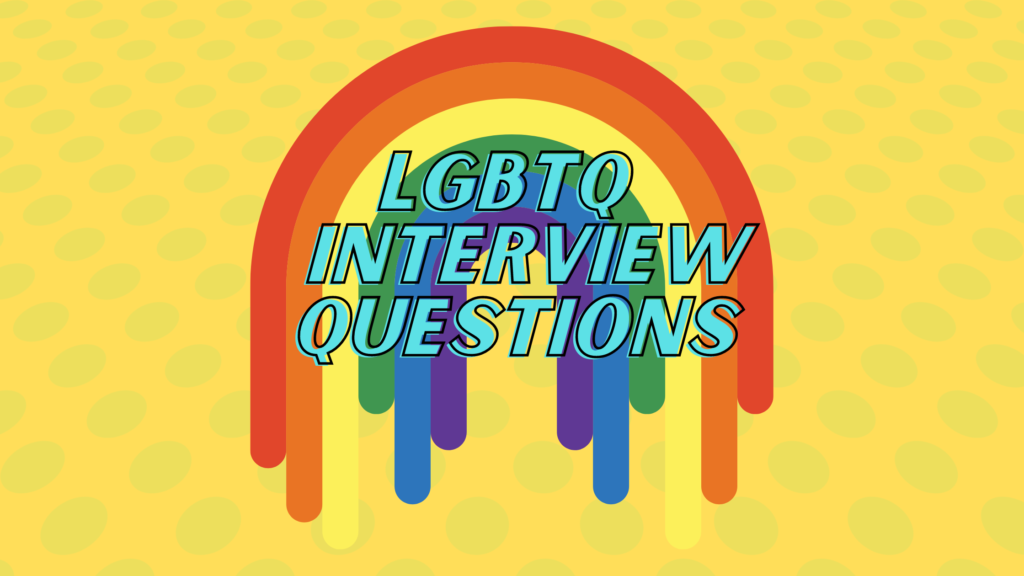
LGBTQ Interview Questions
Even though you’ve spent the time researching your employer and the position they’re hiring for, during an interview is time to have a conversation about all of the things that may not always appear in the job description. Knowing what questions are OK to ask helps you start a vibrant conversation that will help you understand how inclusive their workspace is for you. Here are a few ways to get the convo started!
What is addressed in your equal employment opportunity statement, and do you have identities listed explicitly in your non-discrimination policy?
An equal opportunity employer (EOE) statement is a short paragraph that conveys a business’s commitment to diversity and inclusion in its employment practices. If they aren’t sure about the exact wording, at least this is a great conversation starter to dig into how they value each person’s individuality in their workspace. As an example, let’s look at Google’s statement:
“At Google, we don’t just accept difference — we celebrate it, we support it, and we thrive on it for the benefit of our employees, our products, and our community. Google is proud to be an equal opportunity workplace and is an affirmative action employer.”
What identities are represented in company leadership?
This can start the conversation around gender, identity, and orientation – and remember, so many businesses lead by a vision that someone at the top has put into place. So, where is their influence? Is there LGBTQ representation in the c-suite? Or, even on their board of directors?
What sort of ongoing commitment have you made to cultural competency?
If the answer is seems focused only on one-and-done training exercises, it could be a flag that you need to dig a little deeper. We want to see organizations making commitments to their staff at all LGBTQ intersections, and this includes topics such as race and cultural backgrounds. Other questions in this area are: What type of training is required for HR, managers, executive team, and all staff? How long have they had this practice in place?
What ERG’s (employee resource groups) are available?
We strongly believe that your choice to be out at work is an indicator of your ability to succeed at this job. Understanding what support networks exist within the organization, how long they have had these groups, and how they support them throughout the year. Also, is there public documentation about their diversity, LGBTQ inclusion, accessibility, and racial equity commitments? Do they support Pride or other LGBTQ events throughout the year? This is a great area to spark a rich conversation with the organization to tell them what’s important to you!
Do you have healthcare options that are trans-inclusive, and those that are inclusive for same-sex couples?
While it’s likely going to take reading more about the individual plan itself, this is where you can start probing to find out how their commitment to everyone LGBTQ is shown through their benefits. It’s good that you ask this, even if you are not trans or in a same-sex relationship: It sends a message to the organization that they should be considering this, not to mention giving you insight on how they’ve prioritized our community.
Other questions that speak to LGBTQ-inclusive organizational practices are:
- What is your dress code, and how does it gender people?
- Does your application, background check, email systems, and logins, business cards allow for legal and chosen names?
- How many gender-neutral bathrooms are there (with how many stalls), and where are they located? Do they have all amenities (menstrual product disposal, mirrors, etc.)? How often are they serviced?
- What are the restroom and locker room policies? Can employees use the restroom/locker rooms congruent with their gender identities?
What bathrooms are available for customers? What are the policies there, and are employees trained on them/if so, how? - Are there guidelines for employee pronouns in email signatures, introductions, etc.?
How is your organization committing to anti-racism and fighting white supremacy?
While this could feel uncomfortable asking this, it’s absolutely OK to do so! Businesses need to make the commitment to dismantling these systems and throughout the past months, many have made public statements about their work in this area. It’s all about accountability, and showing how important this is for both the organization and the staff by asking questions about how they are supporting BIPOC communities through outreach, how they respond to the uprising, and what they are doing to change the narrative in their own spaces – it’s all imperative.

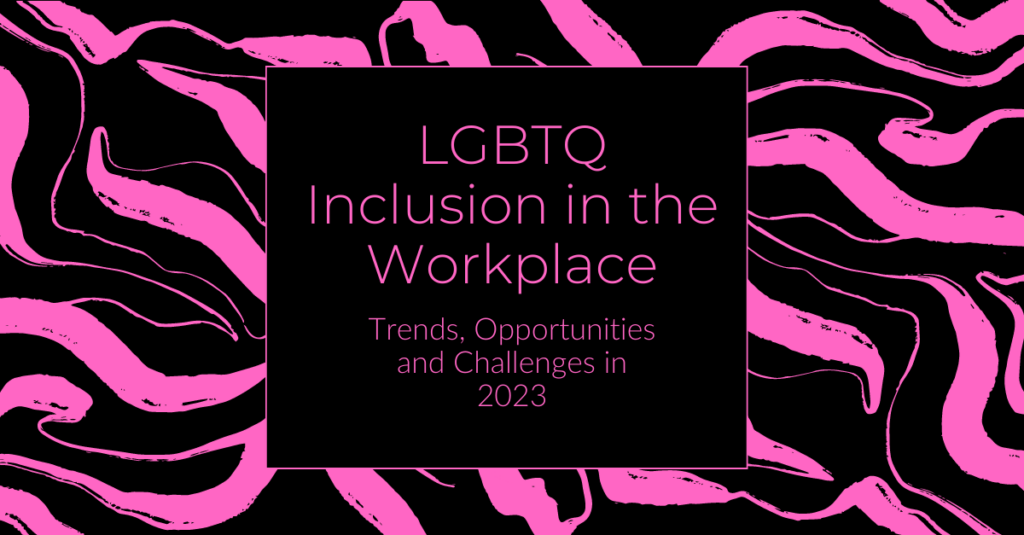
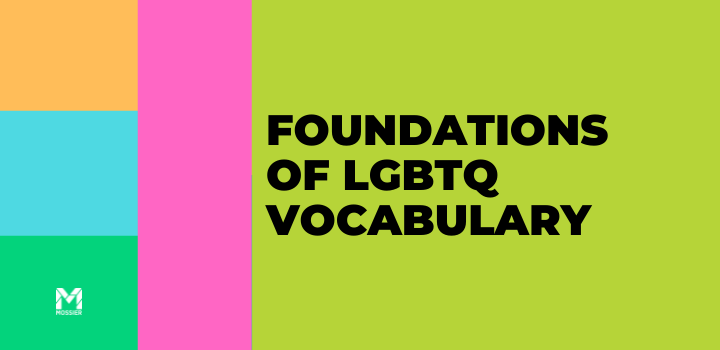

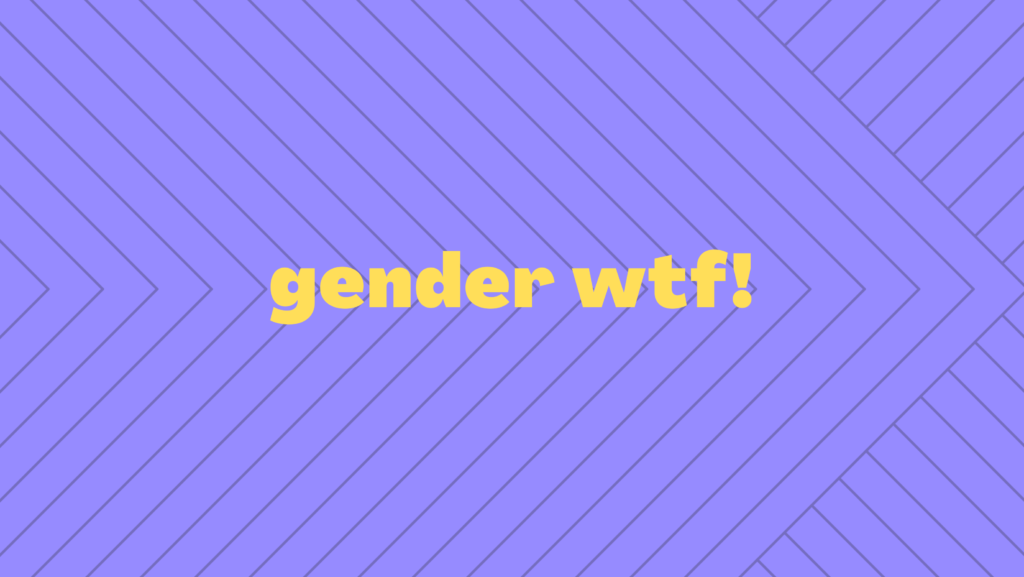
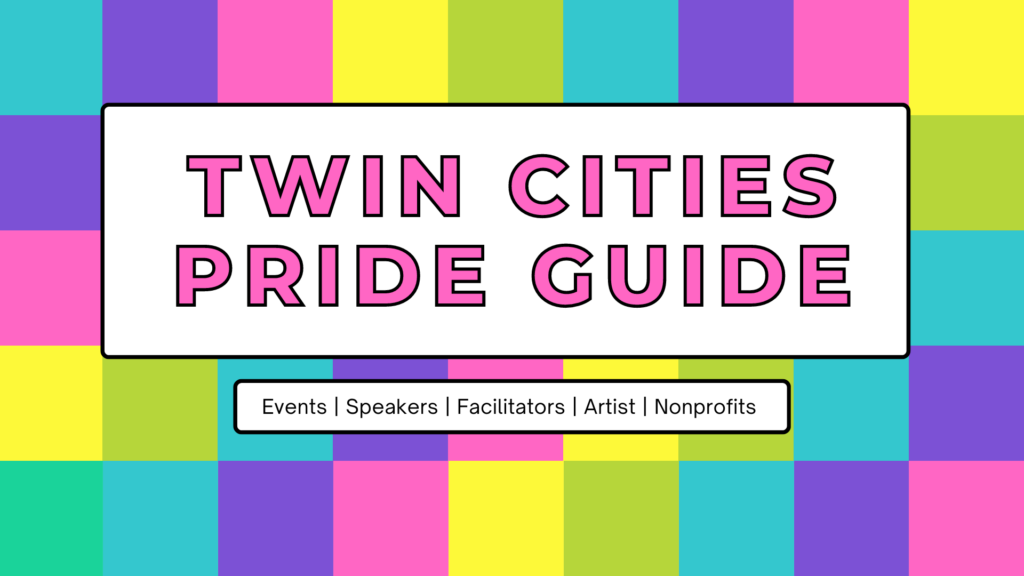
[…] pronouns in employees’ email signatures. You can get this information by researching and asking thoughtful interview questions to learn more about an employer’s inclusive practices in the […]